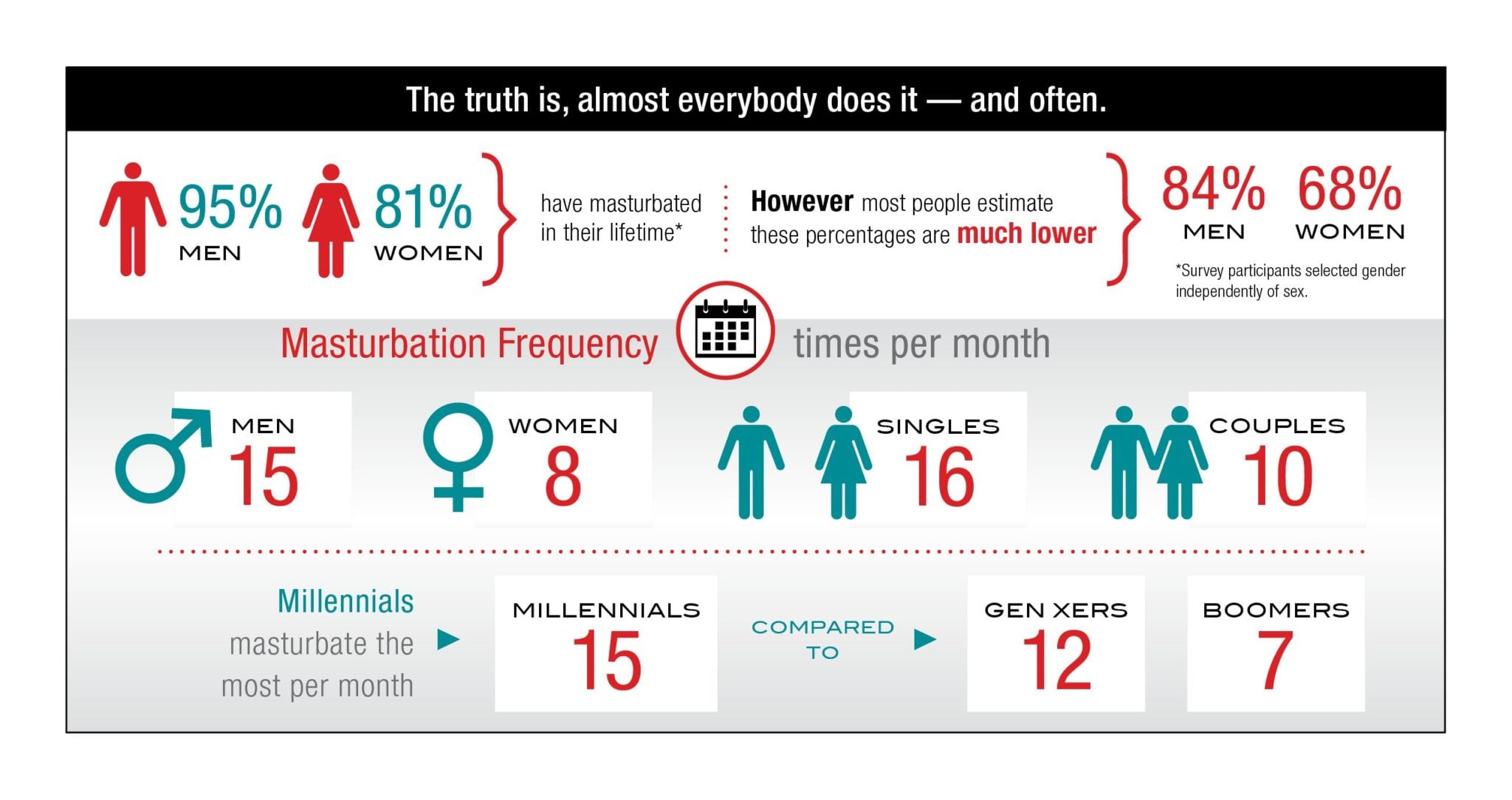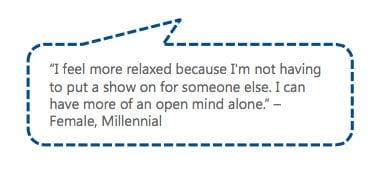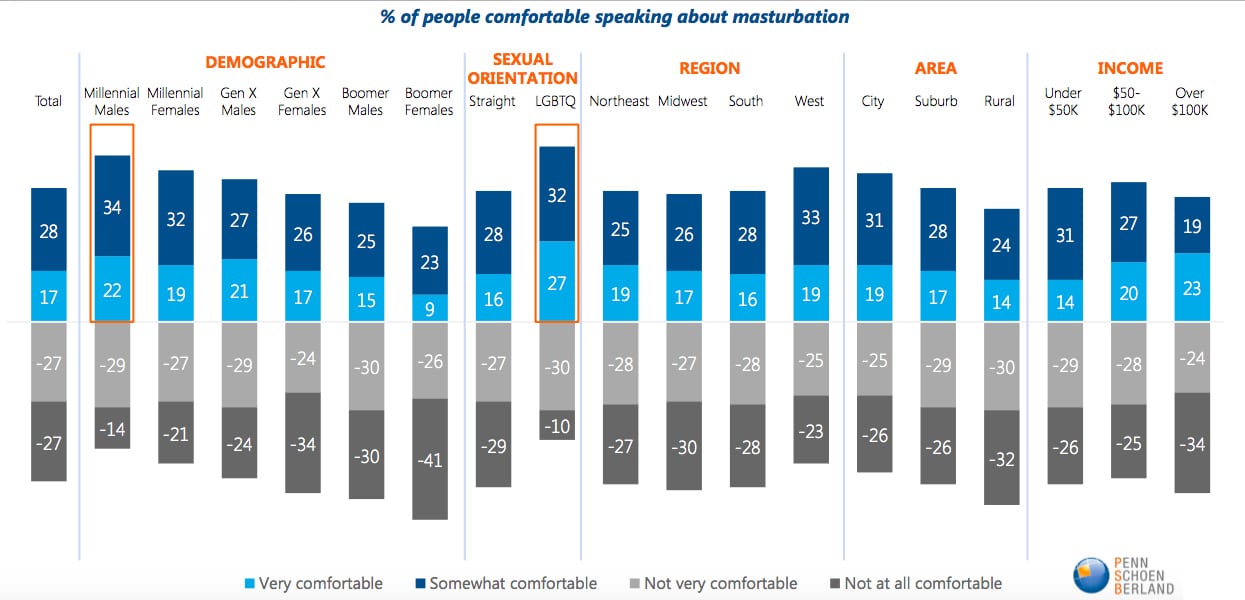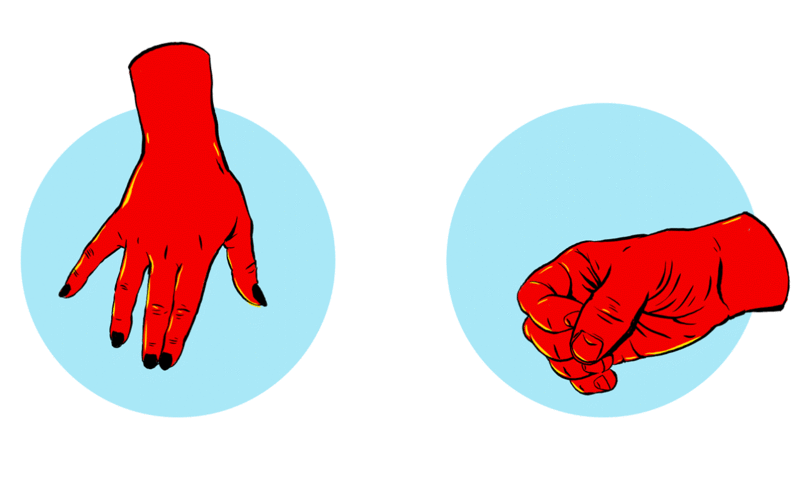It’s 2016 and masturbation is still considered to be somewhat of a taboo topic. Why is no one talking about masturbating? For an activity that almost everyone we know has taken part in, what makes it so uncomfortable to discuss? Earlier this year, friends of SGP, TENGA, undertook a huge study of 1200 Americans, of varying backgrounds, to get the down-low on self-pleasure. The results may surprise you!
Masturbation: Everybody’s Doing It
According to the study, 81% of women and 95% of men report having tried out solo sex at least once in their lifetime. However, when asked what percentage of people they thought masturbated, respondents’ guesses were considerably lower (at 68% for women and 84% for men).
Millennials masturbate about every other day, or 15 times per month. On average, young women begin to masturbate at age 18 (and young men at age 14). Some quick calculations tell us that this works out to … a whole lot of masturbating! So why don’t we hear about it? And why are we assuming our peers masturbate less often than they really do? One reason could be because of the social stigma surrounding masturbation, which is caused in part by the lack of open discussions surrounding the topic.
Masturbation Isn’t Shameful
Of the people interviewed who don’t masturbate, 29% said it’s because masturbation is weird, and 18% think masturbation is silly. It’s totally okay not to masturbate – your body, your choice! However, the notion that masturbation is weird or silly can be harmful and shaming. Masturbation isn’t weird, it’s a normal part of sexuality.
As Dr. Chris Donaghue said at the Sexual Health Expo last month in New York City,
“It’s also important to digest sex-positive media. So much media is sex-negative and shaming. Surround yourself with sex-positive influences, friends, books, experts, companies and media sources that are affirming. It’s important that sex become more normalized. It’s such a natural part of our human nature, yet we’re so ashamed and simply not talking about it! It’s definitely time for sex to come out into the open and recognized as the normal, natural, healthy, pleasurable thing that it is.”
Erasing the Stigma Surrounding Masturbation
To bring masturbation out of the shadows and into the public realm, we have to start acknowledging that it exists and is a healthy part of human sexuality. Dr. Donaghue says,
“It’s important to be honest and open about sex. We can be the sex-positive change we want to see in the world, simply by being open and talking about it with our friends and partners. We can set a positive example by talking about sex in our own lives.”
This doesn’t mean you need to run out in the streets and shout out personal details about your solo sex life to the first stranger you see. What it does mean is that we should work towards being open and willing to discuss masturbation with the people in our lives that we trust and share other experiences with. If we’re willing to talk to our friends about masturbation, they may realize it’s perfectly okay to share their thoughts and feelings as well; the more people we engage in conversations about masturbation, the more commonplace it will become.
The shift towards social acceptance of self-pleasure is already well underway, with TENGA reporting that over half of Millennials feel comfortable openly talking about masturbation, more than either Generation X-ers or Baby Boomers. Yet, 83% of people report rarely, or never, having such conversations. We want to talk about it, but we aren’t actually starting these conversations in real life.
Changing the Way We Talk About Masturbation
We know that changing the dialogue about masturbation is important, but how can we actually start making a difference? What steps can we take to normalize solo sex? SGP had the opportunity to ask Dr. Donaghue about how we can make talking to our friends about masturbation as ordinary as talking about partner sex. He said,
“People think, why can’t you find a partner? Why are you single? It’s mind blowing. […] masturbation isn’t an accomplishment in most people’s lives. You’ve achieved nothing, so it’s not a boost to your self esteem.
“It’s about getting away from the mind set that something only has meaning if there’s a goal achieved or something gained. The mere act of something can be enough. […] It’s hard for people to wrap their head around that, that you can do something for ‘no reason’ just because it’s pleasurable. I think it comes down to a fear of pleasure.”
Becoming a Sex Positive Role Model
At SGP, we believe that being a sex positive role model in your friend group is an awesome way to begin normalizing masturbation. But if your friends are a little more reserved when it comes to talking about masturbation, it can be difficult to know where to start. Luckily, Dr. Donaghue was able to share some great advice:
“You have to keep them in a little bit of the anxiety zone to encourage growth and transformation, but not so much that they turn off. It’s hard, because every person is going to have a different way they relate and talk about it. Depersonalizing it really helps. People are really uncomfortable hearing about people’s personal experiences about masturbation. So it really helps if you talk about it as a concept, or having purchased something, or a study you read. People don’t want to connect the experience to the person.”
So how can we apply Dr. Donaghue’s advice to real life situations? Try mentioning an interesting statistic from TENGA’s study. (Did you know that women are 8% more likely than men to masturbate in five minutes or less?) You can also talk about a toy you’ve purchased or read about. Did you read a cool review on our site? Bring it up over brunch as an ice breaker.
Talking about masturbation doesn’t have to be hard, or even awkward. Everybody does it, it’s time that everybody talks about it too.
You can see all of the fascinating findings from TENGA’s study HERE.







